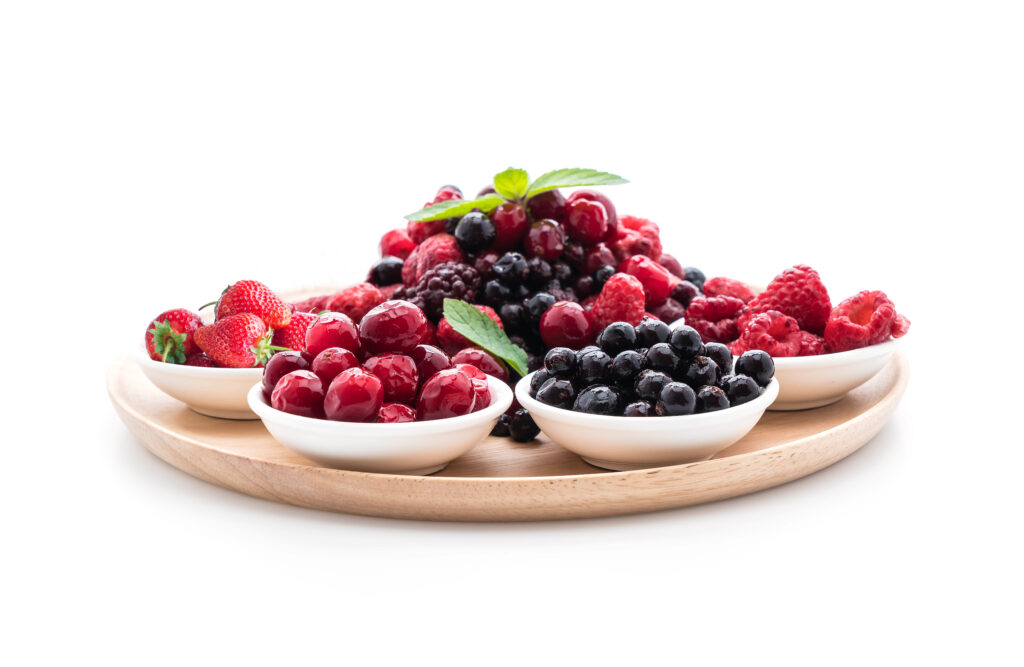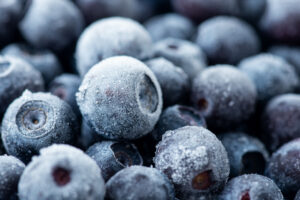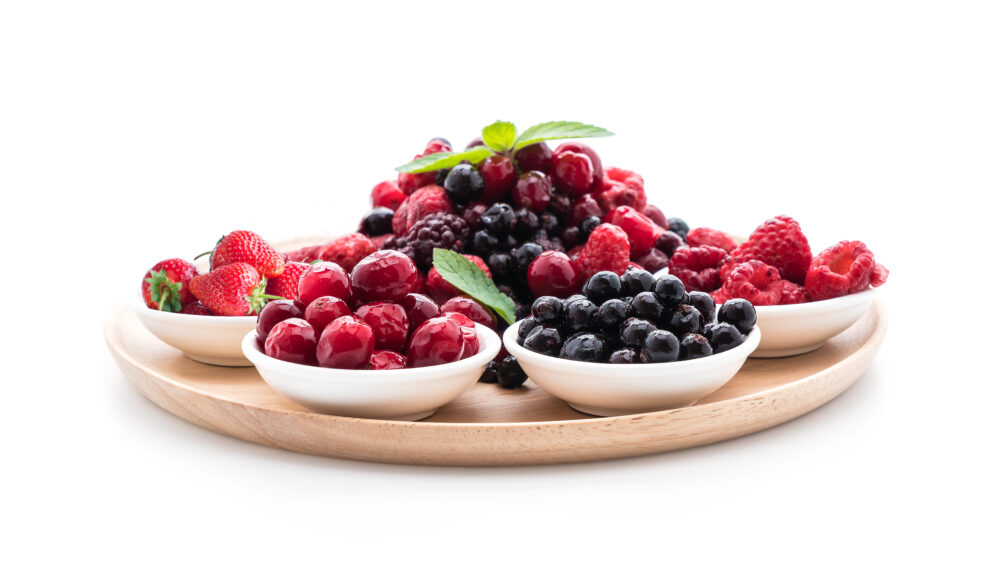Maintaining diabetes is a life-long service diabetics need to keep up. Whether that means keeping track of blood sugar levels or maneuvering the ins and outs of a diabetes-appropriate diet. It is essential to stay on top of their diet, but one myth in the diabetes world is that they have to completely avoid fruit – both fresh and frozen. Thus, limiting a massive food group, which can leave diabetics feeling quite limited. This article is here to break down this fruit-mystery as per the Dietary Guidelines for Maltese Adults where they recommend consuming around 2-3 servings of fruit a day.

How can Diabetics eat fruit – fresh or frozen?
The main concern regarding fruit for those with diabetes, is the high carbohydrate content. This particular carbohydrate is sugar. While this is a fair concern, fruit are more than just their sugar content, more specifically fruit contain specific dietary fibres. This is a complex carbohydrate that is critical in stabilizing blood sugar levels. Furthermore, this dietary fibre cannot be digested by the body, therefore prevents spikes in blood sugar as it slows sugar’s absorption rate into the body. Down below are the 5 best frozen fruits to eat as a diabetic.
Top 5 Frozen Fruit
Frozen Strawberries
Frozen strawberries is a top contender for the frozen fruit movement. Aside from their delicious smell and taste, one great benefit of strawberries is their vast and impressive nutrient profile. As well as their surprisingly low sugar content despite their sweet taste. According to the USDA’s FoodData Central, 1 cup of frozen strawberries consists of 7 grams of natural sugar and around 3 grams of dietary fibre.
Additionally, frozen strawberries are incredibly high in Vitamin C. This is an antioxidant, which helps protect cells from developing high risk chronic diseases such as Type 2 Diabetes. Moreover, strawberries also contain a number of anthocyanins that help reduce free-radical damage and inflammation. In 2019, small studies by Nutrients discovered that consuming strawberries had a positive effect on our bodies’ antioxidant status, and sensitivity in insulin and inflammation. Meaning that it aids our body tissue’s response to insulin, by moving the glucose modules from the blood stream to our cells.
Grab a bag of Asiago’s Frozen Strawberries!

Frozen Raspberries
Raspberries are another red jewel that is low in sugar and high in dietary fibre. With approximately double the amount of dietary fibre than in strawberries, raspberries are a great source for blood sugar management. As per the USDA, 1 cup of frozen raspberries contains 9 grams of sugar, but 6 grams of fibre. Pre-diabetics and those who are insulin resistant have specifically benefitted from frozen raspberries at breakfast time. This is because they reduce blood sugar spikes with lower amounts of insulin after meals. Therefore, improving insulin sensitivity (Obesity, 2019).
Grab your bag of Asiago Frozen Raspberries!

Frozen Blueberries
A fruit with a slightly higher sugar content, per 1 cup, are blueberries, with 13 grams of natural sugar and 4 grams of fibre. Whilst they are higher in sugar, it is the fibre in the whole fruit that moderates the body’s sugar absorption. Additionally, if you are not convinced, then you can take a look at their glycemic load (GL). This takes the rate of increased blood sugar levels due to specific amounts of carbohydrates into consideration. The GL of 1 cup of blueberries is 9.6, which is quite a low reading.
Besides their low GL and dietary fibre, blueberries are nutrient-rich fruit nuggets, full of Vitamin C, Vitamin K and magnesium, often referred to as a ‘superstar food’ (American Diabetes Association). Furthermore, this fruit contains antioxidant-rich anthocyanins, which also reduces the risk of diabetes.
Grab your bag of Asiago Frozen Blueberries!

Frozen Tart Cherries
Another high in sugar, but great diabetes fruit are tart cherries, with 14 grams of natural sugar and 2 grams of fibre (USDA). But again, do not fret, these little fruits are packed with nutrients (potassium and magnesium), and vitamins (Vitamin C). Likewise, cherries also have anti-inflamatory and antioxidant properties, as they contain polyphenols (Nutrients, 2018). Finally, in the same review done by Nutrients, consuming cherries decreases the amount of A1C found in women with diabetes. This is the Hemoglobin A1C test – a blood test that measures your average blood sugar over the past 3 months.
Grab your bag of Asiago Frozen Cherries!

Frozen Avocado
Surprise! Your favourite fatty (healthy fats) fruit also makes the list! These fruits are incredibly low in sugar whilst being high in fibre. With half an avocado containing less than 1 gram of sugar while having 6 grams of fibre (USDA). Avocados are a superfood, brimming with unsaturated fats, Vitamin E, folate, potassium and magnesium. Particularly important to note, their unsaturated fat content (monosaturated fats specifically) have been linked to glucose control. Therefore, contributing to blood glucose regulation which makes them perfect for diabetics (The Journal of Nutrition, 2022).
Grab your bag of Asiago Frozen Avocado!

Frozen Fruit Tips and Tricks
Smoothies are the easiest and most convenient way to consume these frozen fruits. However, just make sure that you are pairing your fruit with appropriate proteins and healthy fats to stabilize your blood sugar. This mixed-berry smoothie bag is a perfect way to maintain your blood sugar whilst enjoying delicious fruit (with avocado!).
Frozen fruit is the perfect topping for porridge, and an excellent way to incorporate fruit into your diet. Giving you the perfect opportunity to mix and match these fruits (always in moderation!).
Or else another way to consumer frozen fruit can be through batter, whether than be pancake, muffin or cake batter, this is a brilliant and easy way to devour fruit.
There is no such thing as forbidden fruit in a diabetic’s well-balanced diet. As shown above, these 5 fruits are perfect for those who want to reduce their diabetes risk and those who need blood sugar management. The most important fact of this article is that the dietary fibre is what helps control blood sugar spikes, whilst also oxidant stress and radical damage.

